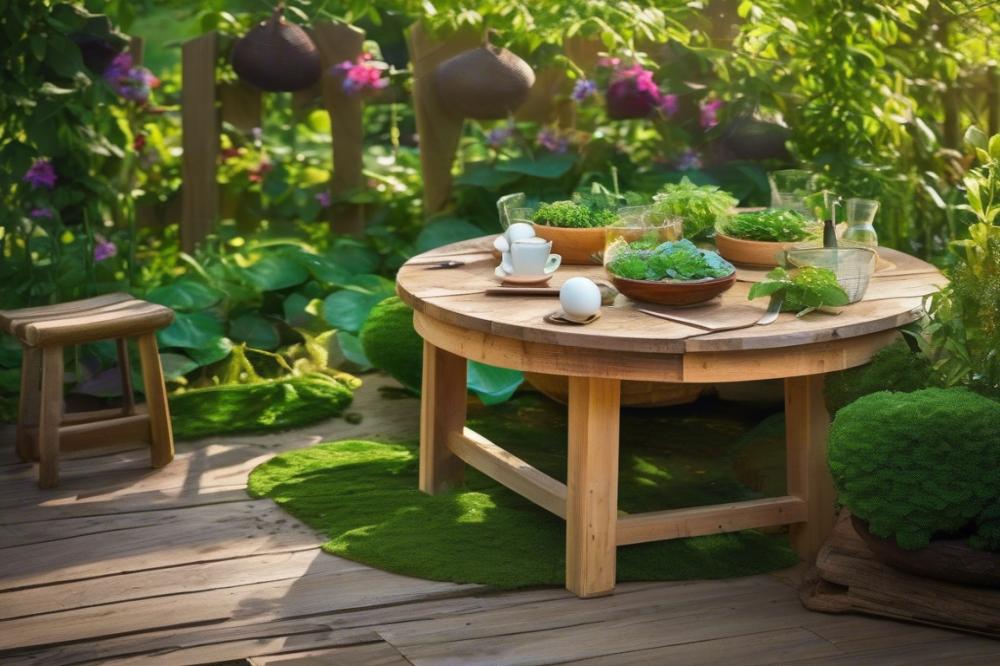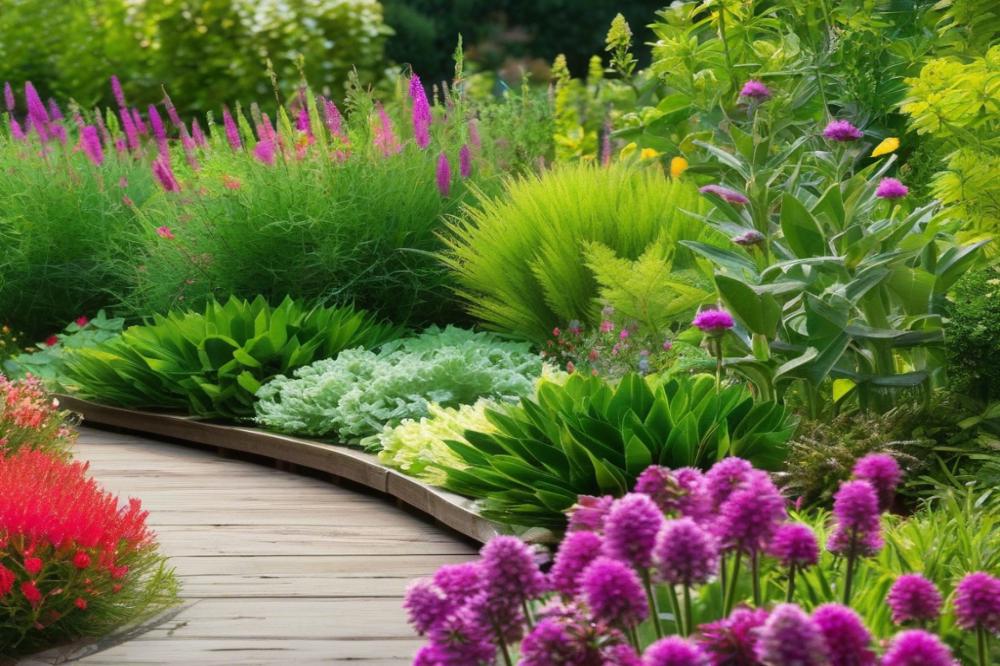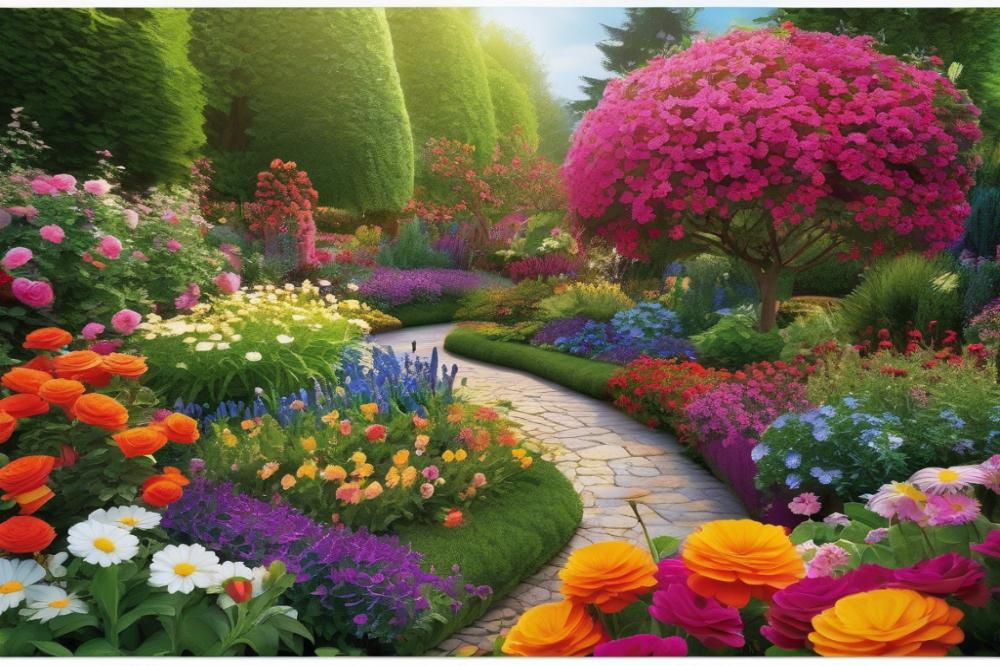Introduction
Gardening can be a delightful hobby, but it often comes with challenges. One such challenge is dealing with Slugs and Snails. These slimy creatures munch on your precious plants and can cause significant damage in a short time. Many gardeners have faced the frustration of waking up to decimated leaves and destroyed flowers. It’s disheartening to see hard work wiped out overnight by these garden pests.
Many people look for solutions that don’t involve harsh chemicals. Organic pest control methods are important for those who care about the environment. Eco-friendly approaches protect not only your plants but also beneficial insects and soil health. Utilizing natural remedies is a great way to maintain a thriving garden while steering clear of synthetic pesticides.
One clever method for slug prevention and snail prevention is creating a barrier from eggshells. This simple technique is easy to implement and leverages a common household waste product. By using eggshells, you not only practice DIY pest control but also recycle. Stay tuned for easy gardening tips on how to make this unique barrier for your garden.
Understanding Slugs and Snails
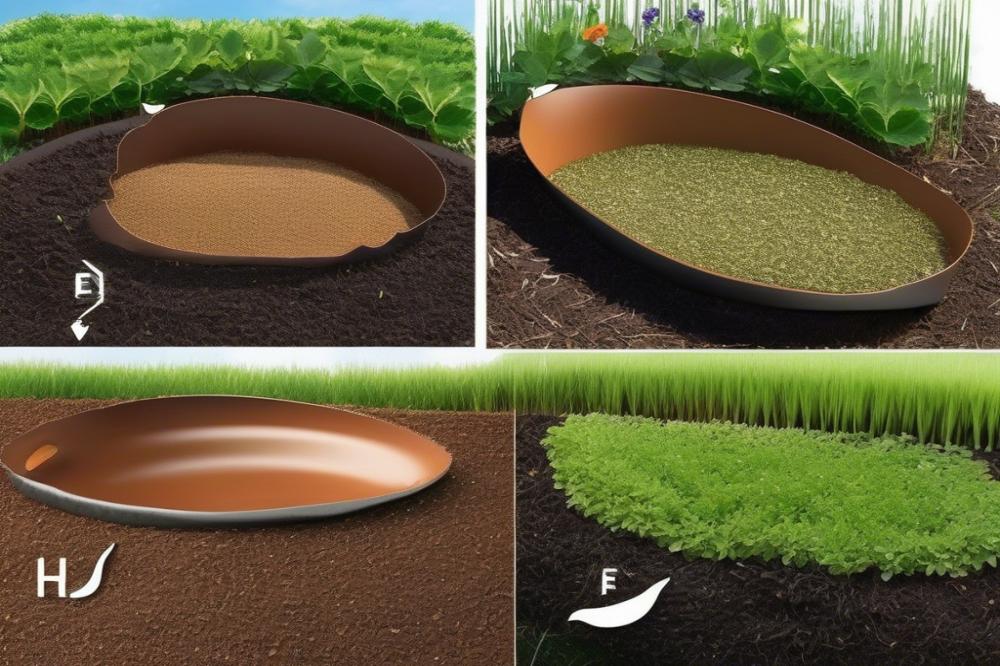

Slugs and snails are more than just slimy creatures you see in your garden. They can cause significant damage to a variety of plants. These pests feast on tender leaves, fresh sprouts, and even ripening fruits. The damage often leads to unsightly holes and can stunt plant growth. If you’ve ever found your beautiful lettuce or delicate marigolds chewed up overnight, you’ve met these unwelcome garden guests.
Choosing natural pest control methods can be a game-changer in your gardening experience. Chemical pesticides may offer quick fixes, but they come with environmental risks. They can harm beneficial insects and pollinators. Chemicals may also linger in the soil, negatively impacting the ecosystem. By opting for eco-friendly solutions, like using crushed eggshells, you support organic gardening. Home remedies can be safe for both your plants and the surrounding wildlife.
Certain plants seem to attract slugs and snails more than others. Tender greens like kale and spinach are particularly vulnerable. Young seedlings often become victims, making it important to protect them well. Your herb garden is not immune either; basil and parsley can suffer too. Flowers such as hostas and dahlias draw these creatures as well. Knowing what is at risk can guide your efforts in slug prevention and snail prevention.
What is an Eggshell Barrier?
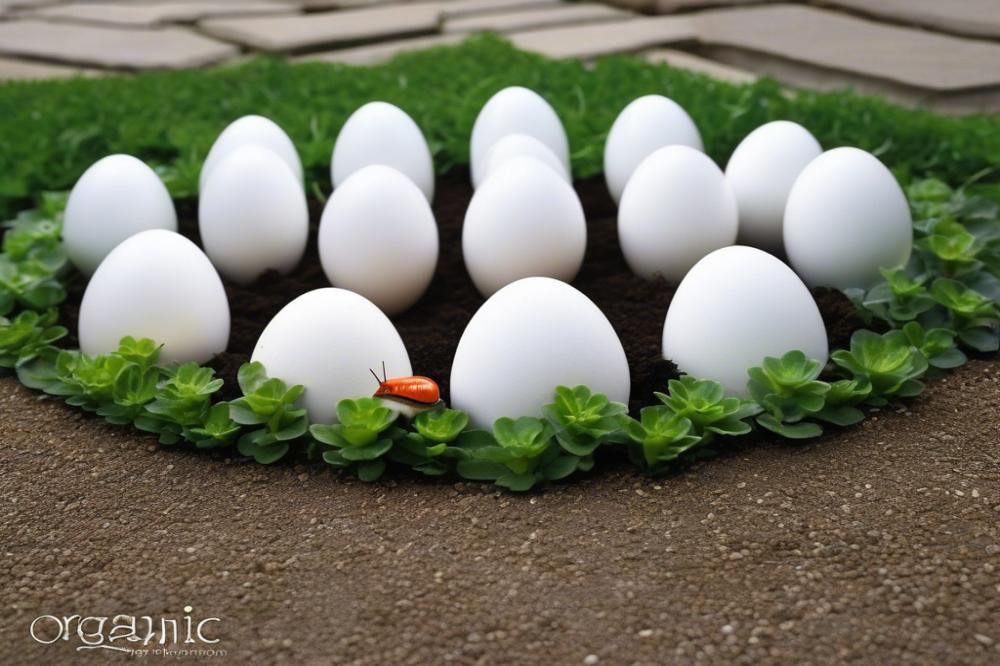

An Eggshell Barrier is a clever and eco-friendly method for protecting your garden from pesky slugs and snails. By using dried eggshells, you can create a physical barrier that these slimy pests find difficult to cross. When crushed, the sharp edges of the shells act as a deterrent. It’s like laying down tiny obstacles that they would rather avoid.
This natural pest control technique is simple yet effective. Slugs and snails dislike the texture of broken eggshells against their soft, moist bodies. When they come into contact with the shards, they often turn back, leaving your plants safe from harm. It’s a low-cost solution that doesn’t involve harmful chemicals. This makes it ideal for organic gardening and those aiming for eco-friendly practices.
Comparing this method to other organic gardening techniques reveals its advantages. Many people use diatomaceous earth, for instance. While it is effective, it can be more expensive and requires frequent reapplication. Eggshells, on the other hand, are a readily available home remedy. Saving your breakfast shells means you’re recycling waste while protecting your beloved garden.
You can also explore other methods like using coffee grounds or copper barriers. However, these might not offer the same level of simplicity and accessibility. Collecting eggshells is a task anyone can handle, making it a popular choice among gardening enthusiasts. Implementing this DIY technique adds a layer of practicality to slug prevention and snail prevention.
Gathering Materials for Your Eggshell Barrier
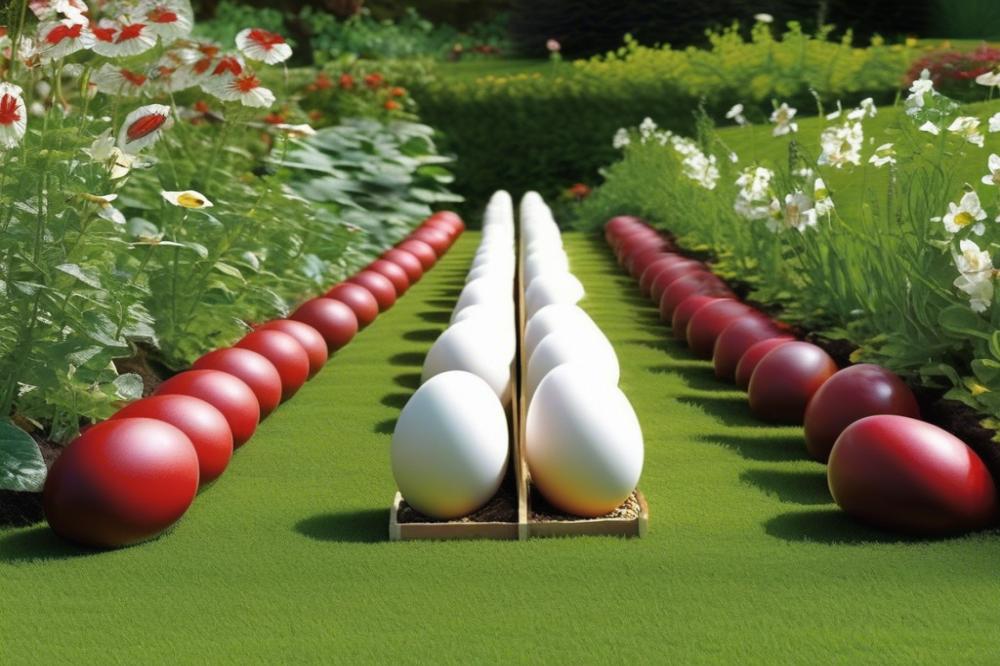

Creating a DIY barrier against slugs and snails requires only a few accessible resources. Start with eggshells, which are not only easy to obtain but also beneficial for your garden. You will need at least a dozen eggs to get enough shells for effective slug prevention. If you’re a frequent baker or cook, you might already have what you need in your kitchen.
Next, source your eggshells. After using the eggs, rinse them out to remove any leftover egg white or yolk. This step is essential to avoid attracting other pests. Once cleaned, allow them to dry completely. Many gardeners recommend drying them in the sun, as this helps them become crispier, making them more effective. After drying, crush the shells into small pieces but not too fine; you want some texture to create the best barrier.
Consider eco-friendly practices while preparing your natural pest control method. By using eggshells, you are recycling kitchen waste, which is a great step toward sustainability. Adding this simple home remedy to your gardening arsenal can significantly reduce reliance on chemical options. Opt for organic gardening solutions whenever possible. Your garden will thrive while keeping pests at bay!
Remember to check local regulations or guidelines when applying any materials to your plants. Some regions may have specific rules about what can be used. Enjoy the rewarding process of creating your own gardening tips, enhancing both plant health and eco-conscious practices.
Step-by-Step Guide to Creating an Eggshell Barrier
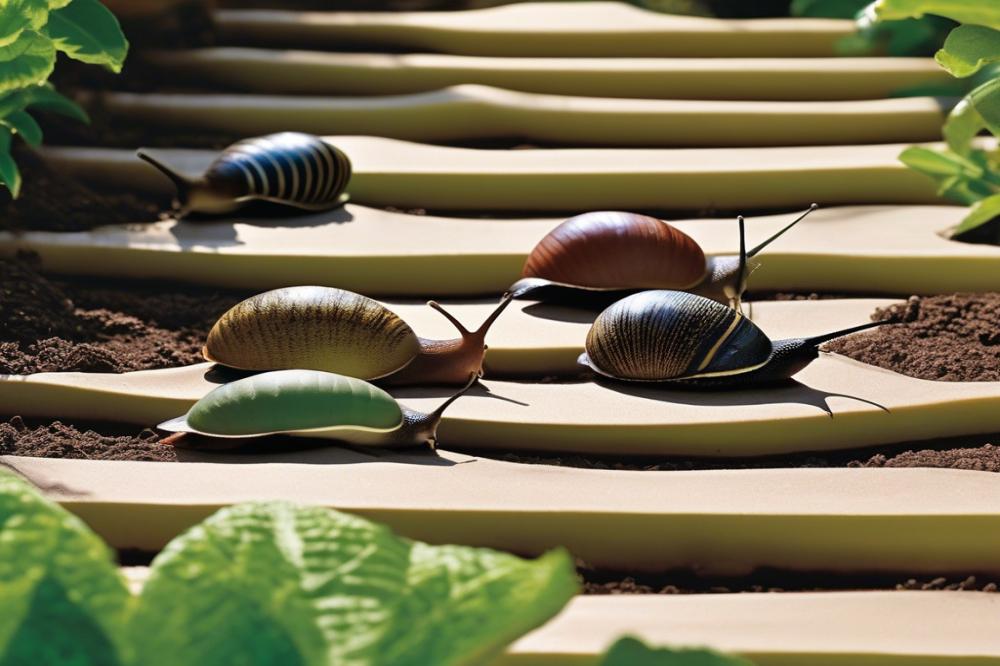

Creating a DIY barrier with eggshells is simple and effective for slug and snail prevention. Start by collecting clean eggshells. After using the eggs, rinse them thoroughly to remove any residue. This will help prevent any unpleasant odors or pests later on.
Next, allow the eggshells to dry completely. You can spread them out on a paper towel or use a baking sheet. Drying is crucial as it makes the shells easier to crush.
Once dried, crush the eggshells into small pieces. Aim for a consistency similar to coarse sand. The jagged edges will discourage slugs and snails from crossing over. Use a blender or simply place them in a sturdy bag and crush them with a rolling pin.
Now it’s time to apply the crushed shells in your garden. Sprinkle a generous amount around the plants most at risk. A circle about six to twelve inches wide works well. This creates a barrier that pests find difficult to navigate.
For best results, apply the eggshells after a rain or watering. Moist ground can soften the shells somewhat, making them more challenging for slugs to cross. Reapply the barrier after heavy rain, as water can wash the shells away.
Best Practices for Placement and Maintenance
Regularly check the barrier. If you notice a buildup of debris or if the shells have been compromised, replace them. This helps maintain the effectiveness of your natural pest control method.
Combine the eggshells with other eco-friendly methods for added protection. Consider planting companion plants that slugs dislike, such as lavender or rosemary. They can complement your DIY efforts.
Additionally, you might want to create a welcoming environment for natural predators. Birds, frogs, and certain insects can help control slug populations naturally. Encourage them by adding birdbaths or rock piles.
Tips for Integrating with Other Gardening Methods
Integrating eggshells into your organic gardening routine is straightforward. Use them as a nutrient source for your soil. Crushed eggshells can add calcium, which is beneficial for plants such as tomatoes and peppers.
Explore other home remedies alongside your eggshell barrier. Coffee grounds can also deter slugs. Sprinkle them in the same areas to create a multi-layered approach.
Another gardening tip includes using diatomaceous earth. This powdery substance is effective against soft-bodied pests, including slugs. A combination of both methods provides comprehensive slug prevention.
Finally, keep a close eye on your garden’s ecosystem. Adjust your strategies based on the slug and snail populations you observe. With time and attention, your garden can thrive in a more protected environment.
Effectiveness and Benefits of Using an Eggshell Barrier
When it comes to slug and snail prevention, the effectiveness of an eggshell barrier stands out. This natural pest control method utilizes crushed eggshells to create a rough surface that deters these garden pests. Many gardeners have found success using this strategy, as the sharp edges make it uncomfortable for slugs and snails to cross. A simple DIY approach can save your plants from unsightly damage.
In addition to pest prevention, eggshells provide a variety of benefits for your garden. They are rich in calcium, which is essential for healthy plant growth. Crushed eggshells can also improve soil structure over time. As they break down, they add valuable nutrients to the ground, making it a win-win for your gardening efforts.
Real-life testimonials from gardeners highlight the practical use of eggshells. One gardener reported a significant decrease in slug activity after applying the barrier around their vegetable beds. Another shared how they combined eggshells with other home remedies for even better results. Many appreciate the eco-friendly aspect of using eggshells, making it an attractive option for those interested in organic gardening.
Gardening tips often recommend this strategy for creating a more vibrant garden. By incorporating an eggshell barrier, you contribute to a healthier ecosystem. Your plants can thrive without the worry of being eaten away by pests. That means less stress for you and more enjoyment from your hard work!
Additional Natural Remedies for Pest Control
Exploring various techniques for pest control can enhance your gardening experience. While the eggshell barrier is effective for slug and snail prevention, combining it with other methods can yield even better results. Many gardeners have discovered that integrating multiple strategies gives them a stronger defense against pests.
Overview of Other Natural Pest Control Methods
Home remedies offer a range of options for those interested in organic gardening. Coffee grounds can provide a strong repellent for slugs. Additionally, diatomaceous earth creates a rough surface that pests find difficult to cross. Garlic sprays work wonders as well. The pungent smell deters unwanted visitors while being completely safe for your plants.
How to Combine Eggshell Barriers with Other Techniques
Think about creating layers of protection using these methods together. A good option is to sprinkle coffee grounds around your plants after laying down the eggshells. This combination makes for a multi-faceted approach to pest management. If you apply garlic spray alongside these, you will likely see fewer slugs and snails. Using various techniques can build a barrier that pests find hard to penetrate.
Gardening Tips for Creating a Healthier, Pest-Resistant Environment
Some gardening tips can transform your garden into a more resilient haven. Start by ensuring a diverse plant selection. Companion planting can draw in beneficial insects while repelling troublesome ones. Keep your garden tidy and remove decomposing organic material where pests might hide. Regularly inspecting plants for early signs of damage allows prompt action.
Implementing eco-friendly practices can also help. Using organic fertilizers and watering early in the morning can promote healthy growth while reducing the chances of attracting pests. Remember, a healthy garden is often a pest-resistant one.
Wrapping Up: Embrace Eco-Friendly Solutions
Using an eggshell barrier offers a natural and effective way to combat slugs and snails in your garden. This method not only protects your plants but also reduces the need for harmful chemicals. Slugs and snails dislike crawling over sharp eggshells, making your garden a less welcoming environment for them.
Adopting eco-friendly pest control measures, like this DIY technique, can lead to healthier plant growth and a more balanced ecosystem. It’s a simple step you can take to support a sustainable gardening practice. Every method counts when it comes to keeping our environment safe.
Organic gardening is not just a trend; it is a commitment to the Earth and future generations. By caring for your garden organically, you contribute to a healthier planet. Remember, small changes can make a big difference. So, why not give it a try? Your garden will thank you, and so will the environment.

